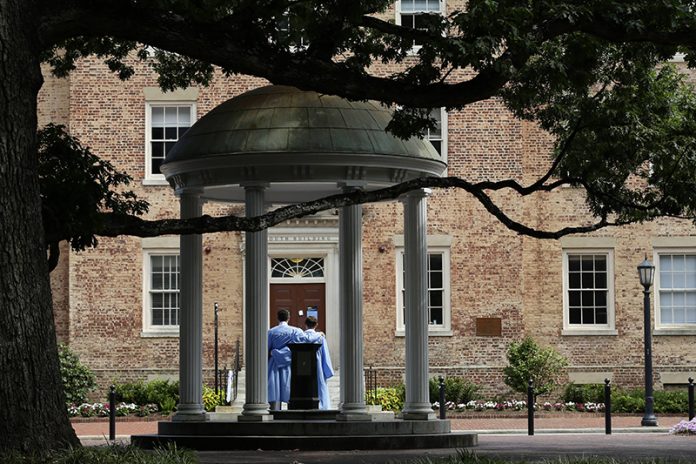
The University of North Carolina at Chapel Hill announced Tuesday that it will pay a $1.5 million fine to the U.S. Department of Education to resolve a dispute over its failure to fully report information about crimes that occurred on campus.
A report from the education department in August 2019 outlined a years-long “persistent failure to compile and disclose accurate and complete campus crime statistics” at the university.
The lack of compliance with the Clery Act and Higher Education Act fire safety rules was partially fueled by “administrative weaknesses,” according to the review of crime and safety reporting between 2009 and 2017.
Under the settlement agreement announced on Tuesday, the university waived its right to appeal any potential fines that could have resulted from last year’s review. It also agreed to form a Clery Compliance Committee and undergo three years of continued monitoring by the education department.
UNC Chancellor Kevin Guskiewicz said in a statement that the shortcomings noted in the report were “disappointing and do not meet our standards for excellence,” but said the university “is committed to preventing, responding to and accurately reporting crimes, and to issuing timely notice about any known safety threats to our campus community.”
Brooks Fuller, director of the North Carolina Open Government Coalition, said the $1.5 million penalty reflects a larger pattern of the university not releasing public information it is required to under law.
“UNC-Chapel Hill has come under a lot of fire for denying the public access to what ought to be public records, especially in the realm of serious Title IX issues,” Fuller said. “Public records are the property of the public and universities do their best work when they do it in the light of the day.”



















